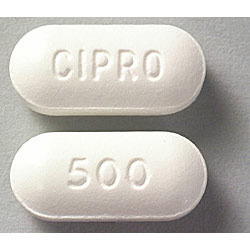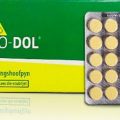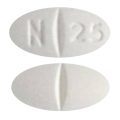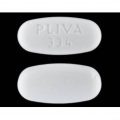What is Fulgram 500?
Fulgram 500 is a brand of Ciprofloxacin produced by USV Ltd a top old leading healthcare industry & pharmaceutical company in Mumbai, India. Ciprofloxacin is a drug used to treat bacterial infections. It is a second-generation fluoroquinolone antibacterial. It kills bacteria by interfering with the enzymes that cause DNA to rewind after being copied, which stops DNA and protein synthesis. According to India MIMS, this medication contains 500mg of the active ingredient.
Ciprofloxacin is marketed worldwide with over three hundred different brand names. In the United States, Canada, and the UK, it is marketed as Ciloxan, Cipro, Cipro XR, Cipro XL Ciproxin, and most recently, Proquin. In Mexico, it is available over the counter and marketed under the names Ciproflox or Ciprofloxacino. In Ecuador, it is available and marketed under the name Cidrax. In Nigeria, it is sold as Ciprotab while in Bangladesh it is marketed as Tablets and Microcapsules for Suspension by numerous companies, one of which is by Edruc Limited as Cipron. Additionally, ciprofloxacin is available as a generic drug under a variety of different brand names and is also available for limited use in veterinary medicine.
How should Fulgram be used?
Fulgram comes as a tablet (250mg and 500mg) to take by mouth with or without food. The tablets are usually taken twice a day, and the extended-release tablets are usually taken once a day. When used to treat gonorrhea, the tablets and suspension may be given as a single dose. Take Fulgram at around the same time(s) every day. The length of your treatment depends on the type of infection you have. Your doctor will tell you how long to take ciprofloxacin. Follow the directions on your prescription label carefully, and ask your doctor or pharmacist to explain any part you do not understand. Take fulgram exactly as directed. Do not take more or less of it or take it more often than prescribed by your doctor.
One type of ciprofloxacin cannot be substituted for another. Be sure that you receive only the type of ciprofloxacin that was prescribed by your doctor. Ask your pharmacist if you have any questions about the type of ciprofloxacin you were given.
Do not take Fulgram with dairy products or calcium-fortified juices alone. However, you may take ciprofloxacin with a meal that includes these foods or drinks.
Swallow the tablets whole; do not split, crush, or chew them. If you cannot swallow tablets whole, tell your doctor. If you are taking the suspension, shake the bottle very well for 15 seconds before each use to mix the medication evenly. Swallow the correct dose without chewing the granules in the suspension. Close the bottle completely after each use. Do not give the suspension to a patient through a feeding tube.
You should begin feeling better during the first few days of your treatment with Fulgram. If your symptoms do not improve or if they get worse, call your doctor. If you are being treated for a urinary tract infection, call your doctor if you develop fever or back pain during or after your treatment. These symptoms may be signs that your infection is worsening.
Take Fulgram until you finish the prescription, even if you feel better. Do not stop taking Fulgram without talking to your doctor unless you experience certain serious side effects. If you stop taking Fulgram too soon or if you skip doses, your infection may not be completely treated and the bacteria may become resistant to antibiotics.
What side effects can Fulgram cause?
Fulgram may cause side effects. Tell your doctor if any of these symptoms are severe or do not go away:
- nausea
- vomiting
- stomach pain
- heartburn
- diarrhea
- vaginal itching and/or discharge
- pale skin
- unusual tiredness
- sleepiness
If you experience any of the following symptoms, stop taking ciprofloxacin and call your doctor immediately or get emergency medical help:
- severe diarrhea (watery or bloody stools) that may occur with or without fever and stomach cramps (may occur up to 2 months or more after your treatment)
- rash
- hives
- itching
- peeling or blistering of the skin
- fever
- swelling of the eyes, face, mouth, lips, tongue, throat, hands, feet, ankles, or lower legs
- hoarseness or throat tightness
- difficulty breathing or swallowing
- ongoing or worsening cough
- yellowing of the skin or eyes; pale skin; dark urine; or light-colored stool
- extreme thirst or hunger; pale skin; feeling shaky or trembling; fast or fluttering heartbeat; sweating; frequent urination; trembling; blurred vision; or unusual anxiety
- fainting or loss of consciousness
- decreased urination
- sudden pain in the chest, stomach, or back
Fulgram contains ciprofloxacin and may cause problems with bones, joints, and tissues around joints in children. Fulgram should not normally be given to children younger than 18 years of age unless they have certain serious infections that cannot be treated with other antibiotics or they have been exposed to plague or anthrax in the air. If your doctor prescribes ciprofloxacin for your child, be sure to tell the doctor if your child has or has ever had joint-related problems. Call your doctor if your child develops joint problems such as pain or swelling while taking ciprofloxacin or after treatment with ciprofloxacin.
Talk to your doctor about the risks of taking ciprofloxacin or giving ciprofloxacin to your child.
Ciprofloxacin may cause other side effects. Call your doctor if you have any unusual problems while taking this medication.
What special precautions should I follow?
Before taking Fulgram,
- tell your doctor and pharmacist if you are allergic or have had a severe reaction to ciprofloxacin. Any other quinolone or fluoroquinolone antibiotics such as delafloxacin (Baxdela), gemifloxacin (Factive), levofloxacin (Levaquin), moxifloxacin (Avelox), and ofloxacin; any other medications, or if you are allergic to any of the ingredients in ciprofloxacin tablets or suspension. Ask your doctor or pharmacist for a list of the ingredients.
- tell your doctor if you are taking tizanidine (Zanaflex). Your doctor will probably tell you not to take ciprofloxacin while you are taking this medication.
- tell your doctor and pharmacist what other prescription and nonprescription medications, vitamins, nutritional supplements, and herbal products you are taking or plan to take. Be sure to mention the medications listed in the IMPORTANT WARNING section and any of the following: anticoagulants (‘blood thinners’) such as warfarin (Coumadin, Jantoven); certain antidepressants; antipsychotics (medications to treat mental illness) such as clozapine (Clozaril, Fazaclo, Versacloz) and olanzapine (Zyprexa, in Symbax); azithromycin (Zithromax, Zmax); caffeine or medications that contain caffeine (Excedrin, NoDoz, Vivarin, others); clarithromycin (Biaxin, in Prevpac); cyclosporine (Gengraf, Neoral, Sandimmune); diuretics (‘water pills’); duloxetine (Cymbalta); erythromycin (E.E.S., Eryc, Eryped, others); insulin or other medications to treat diabetes such as chlorpropamide, glimepiride (Amaryl, in Duetact), glipizide (Glucotrol), glyburide (DiaBeta), tolazamide, and tolbutamide; certain medications for irregular heartbeat such as amiodarone (Nexterone, Pacerone), disopyramide (Norpace), procainamide, quinidine (in Nuedexta), and sotalol (Betapace, Betapace AF, Sorine, Sotylize); methotrexate (Otrexup, Rasuvo, Trexall); certain nonsteroidal anti-inflammatory drugs (NSAIDs) such as ibuprofen (Advil, Motrin, others) and naproxen (Aleve, Naprosyn, others); pentoxifylline (Pentoxil); phenytoin (Dilantin, Phenytek); probenecid (Probalan, in Col-Probenecid); ropinirole (Requip); sildenafil (Revatio, Viagra); theophylline (Elixophyllin, Theo-24, Uniphyl, others); tizanidine (Zanaflex); or zolpidem (Ambien, Edluar, Intermezzo, Zolpimist). Your doctor may need to change the doses of your medications or monitor you carefully for side effects. Many other medications may also interact with ciprofloxacin, so be sure to tell your doctor about all the medications you are taking, even those that do not appear on this list.
- if you are taking antacids containing calcium, aluminum hydroxide, or magnesium hydroxide (Maalox, Mylanta, Tums, others); or certain medications such as didanosine (Videx) solution; calcium, iron, or zinc supplements; phosphate binders such as sevelamer (Renagel, Renvela) or lanthanum carbonate (Fosrenol); or sucralfate (Carafate), take ciprofloxacin at least 2 hours before or 6 hours after you take these medications.
- tell your doctor if you or anyone in your family has or has ever had a prolonged QT interval (a rare heart problem that may cause irregular heartbeat, fainting, or sudden death). Also, tell your doctor if you have or have ever had an irregular or slow heartbeat, heart failure (a condition in which the heart is unable to pump enough blood to the other parts of the body), a heart attack, an aortic aneurysm (swelling of the large artery that carries blood from the heart to the body), high blood pressure, peripheral vascular disease (poor circulation in the blood vessels), Marfan syndrome (a genetic condition that can affect the heart, eyes, blood vessels and bones), Ehlers-Danlos syndrome (a genetic condition that can affect the skin, joints, or blood vessels), or have a low level of potassium or magnesium in your blood. Also, tell your doctor if you have or have ever had diabetes or problems with low blood sugar or liver disease.
- tell your doctor if you are pregnant or plan to become pregnant. If you become pregnant while taking ciprofloxacin, call your doctor.
- tell your doctor if you are breastfeeding. You should not breastfeed while you are taking ciprofloxacin and for at least 2 days after your final dose.
- do not drive a car, operate machinery or participate in activities requiring alertness or coordination until you know how this medication affects you.
- plan to avoid unnecessary or prolonged exposure to sunlight or ultraviolet light (tanning beds and sunlamps) and to wear protective clothing, sunglasses, and sunscreen. Ciprofloxacin may make your skin sensitive to sunlight or ultraviolet light. If your skin becomes reddened, swollen, or blistered, like a bad sunburn, call your doctor.





